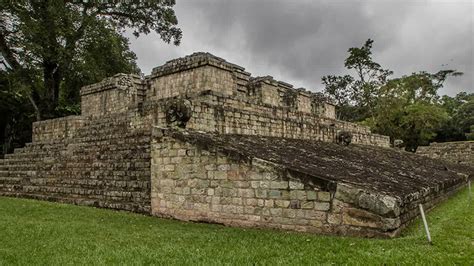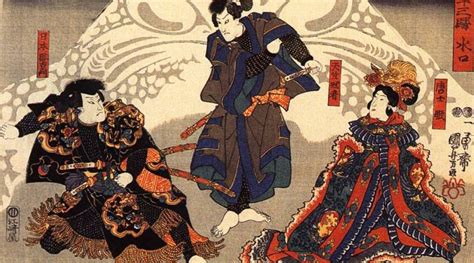Explore Fiji’s rich history, from early settlement to modern political developments. Learn about European exploration, British rule, independence movement, and more.
Early Settlement of Fiji
Contents
Fiji has a rich history of early settlement, dating back over 3,000 years. The first inhabitants of the islands were believed to be Austronesian-speaking people who arrived in canoes from the islands of Southeast Asia. These early settlers brought with them their unique culture and traditions, which have shaped the identity of Fiji to this day.
As the Austronesian people established their communities in Fiji, they developed a complex social structure and governing systems. Villages were led by chiefs and elders, and the people practiced a form of animistic religion. Agriculture and fishing were the primary means of subsistence for the early Fijians, and they developed sophisticated methods for farming and marine resource management.
European exploration of Fiji began in the 17th century when Dutch explorer Abel Tasman was the first European to sight the islands. However, it was not until the 19th century that European colonization had a significant impact on the islands. British explorers and traders arrived in Fiji in the late 18th century, and their interactions with the native Fijians ultimately led to the cession of the islands to the British Crown in 1874.
The early settlement of Fiji was marked by significant cultural exchange and the introduction of new technologies and practices. The arrival of European settlers and traders brought about profound changes in Fijian society, as well as conflict and tension between the native population and the newcomers. Despite these challenges, the early settlement period laid the foundation for the modern multicultural society that is present in Fiji today.
European Exploration and Colonization
The history of Fiji is a complex and fascinating story that begins with the European exploration and colonization of the islands. In the 17th century, European explorers, primarily from Britain and the Netherlands, began to visit the islands in search of new territories and resources. These early explorers were followed by European traders and missionaries, who established a presence on the islands and began to interact with the indigenous Fijian people.
As European influence grew, so too did the impact of colonization on Fiji. In the 19th century, the islands became a key player in the global trade of sugar, cotton, and other valuable commodities. This led to an influx of European settlers and the establishment of permanent colonies on the islands. The colonial powers imposed their own systems of governance and administration, which greatly altered the social and political landscape of Fiji.
The impact of European colonization on Fiji was profound and far-reaching. The indigenous Fijian population faced significant challenges and upheaval as a result of European influence, including loss of land, cultural disruption, and the introduction of new diseases. The European colonizers also brought with them new technologies, ideas, and practices that fundamentally transformed the way of life in Fiji.
Despite the challenges and disruptions caused by European exploration and colonization, the experience also contributed to the unique cultural and historical identity of Fiji. The islands became a melting pot of different cultures and influences, blending traditional Fijian customs with European practices and beliefs. This fusion of cultures continues to shape modern Fiji and its people to this day.
Impact of the British Rule
Impact of the British Rule
During the 19th century, Fiji came under the control of the British Empire, leading to significant changes in the political, social, and economic landscape of the islands. The impact of British rule on Fiji was profound, shaping the country’s future in various ways.
One of the key impacts of British rule was the introduction of a modern administrative system. The British established a colonial government in Fiji, implementing new laws and regulations that were based on British legal and political systems. This laid the foundation for the modern governance structure in Fiji, setting the stage for the country’s future development.
Another notable impact was the influx of Indian indentured laborers to work on the sugar plantations. The British brought thousands of Indian workers to Fiji, significantly altering the demographic makeup of the islands. This led to the establishment of a vibrant and diverse Indo-Fijian community, which has played a significant role in shaping the cultural and economic fabric of the country.
British rule also had a profound impact on the traditional Fijian chiefly system. The British colonial authorities sought to exert control over the indigenous population, leading to significant changes in the political and social hierarchy of the islands. This had long-lasting implications for the traditional leadership structures in Fiji, leading to tensions and challenges in the post-colonial era.
In addition, British rule also brought about significant changes in the economic development of Fiji. The British introduced modern agricultural practices and infrastructure, leading to the expansion of the sugar industry and other sectors of the economy. This laid the groundwork for Fiji’s future as a key player in the Pacific region’s economy.
Fiji’s Independence Movement
The independence movement in Fiji began in the early 20th century, as the indigenous Fijian population sought to assert their autonomy and rid themselves of colonial rule. The British had occupied the islands in the 19th century and their control over Fiji was increasingly resented by the local population. This resentment boiled over into widespread protest and civil disobedience in the 1960s and 1970s, as the people of Fiji demanded self-governance and an end to colonial rule.
Many Fijians felt that they were being exploited by the British and were denied the rights and freedoms that were enjoyed by the colonial rulers. The movement for independence gained momentum as more and more Fijians from all walks of life joined the cause, uniting to achieve a common goal. Political leaders and activists emerged to lead the charge for independence, galvanizing support and mobilizing the population to stand up against colonial oppression.
The struggle for independence in Fiji was not without its challenges, as the colonial authorities sought to suppress dissent and maintain their hold over the islands. However, the determination and resilience of the Fijian people ultimately led to success, with Fiji gaining independence from Britain on October 10, 1970. This marked a significant turning point in the history of Fiji, as the country embarked on a new journey as a sovereign nation, free from colonial control and able to chart its own course.
The legacy of the independence movement continues to resonate in Fiji to this day, serving as a reminder of the resilience and spirit of the Fijian people in their quest for freedom and self-determination. The struggle for independence has become an integral part of the national identity, shaping the values and aspirations of the people of Fiji as they strive to build a prosperous and inclusive society for future generations.
Modern Political Developments
Fiji has experienced significant political developments in recent years, shaping the country’s governance and leadership. The political landscape of Fiji has been marked by a series of coups, conflicts, and reforms, reflecting the complex and dynamic nature of its government. The 2006 coup led by Commodore Frank Bainimarama resulted in significant changes to the country’s political system and its relationships with other nations.
In 2014, Fiji held its first election since the coup, marking a significant step towards the restoration of democracy. This election saw the rise of Bainimarama’s political party, FijiFirst, which secured a majority of seats in the Parliament. As a result, Bainimarama became the Prime Minister of Fiji, initiating a period of political stability and economic development.
The presidential election in 2018 saw a historic moment for Fiji, with the appointment of the country’s first female president, Her Excellency Madam Halimah Yacob. This marked a significant milestone in Fiji’s political history, reflecting the nation’s commitment to gender equality and inclusivity in leadership roles.
Furthermore, the 2022 elections are anticipated to bring further political changes, with ongoing discussions and debates surrounding issues such as governance, climate change, and international relations. The modern political developments in Fiji exemplify the nation’s journey towards democracy, stability, and inclusive governance, reflecting the aspirations of its diverse population and the global community.












